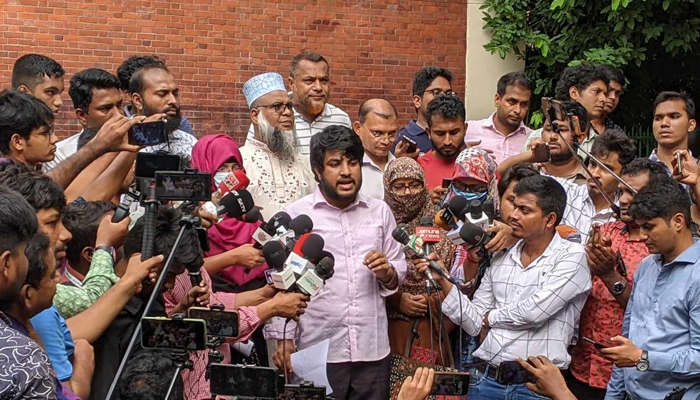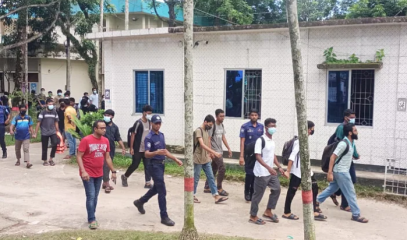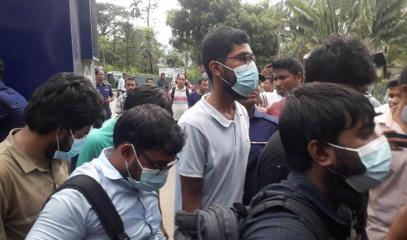Bangladeshi police arrest 34 people in connection with planned ‘anti-government’ activities
The suspect’s families responded right away, proclaiming their innocence. Police say they have “solid” evidence that the people involved were planning acts of terrorism. The authorities also accuse them of links with the Islami Chhatra Shibir, a student organisation connected to the country's largest Islamist party.
Dhaka (AsiaNews) – More than 30 students, many from the Bangladesh University of Engineering and Technology (BUET), were arrested early this week in Sunamganj under the Bangladesh’s anti-terrorism law on suspected ties with Islami Chhatra Shibir, an organisation believed to be the student wing of the Bangladesh Jamaat-e-Islami, the country’s largest Islamist political party.
The next day the students’ relatives held a press conference in Dhaka claiming that the students were innocent. “We can say that our children are not involved in any anti-state activity. They are ordinary students,” said one parent on behalf of the others.
Ali Ahasan Junaid, brother of one of the young men arrested, tried to explain the situation.
“On July 29, the students went for a boat trip to Sunamganj's Tangua Haor. They were not available on their phones for a long time,” he said.
“At around 10 pm,” he added, “many called suddenly and asked for their identity card number, saying that they had been arrested and were at the Tahirpur police station. We then tried to contact the local police superintendent and the officer in charge, without success."
Tangua Haor is a wetland that draws thousands of visitors every year.
In the police report, the 34 students are accused of disturbing the peace, engaging in terrorist activities, and conspiring against the state in a "religious jihad".
Syed Iftekhar Hossain, the officer in charge of the Tahirpur police station, explained that the police had received a reliable tip that the students were involved in anti-government activities.
"Do you think we arrested them for no reason? We received solid information that they had come here to plan sabotage," he said.
Police seized mobile phones, bags, and papers from the students, including brochures about camp funding and Qurʾān reading.
The students were detained in prison, but 32 of the 34 were eventually released on bail.









.png)










